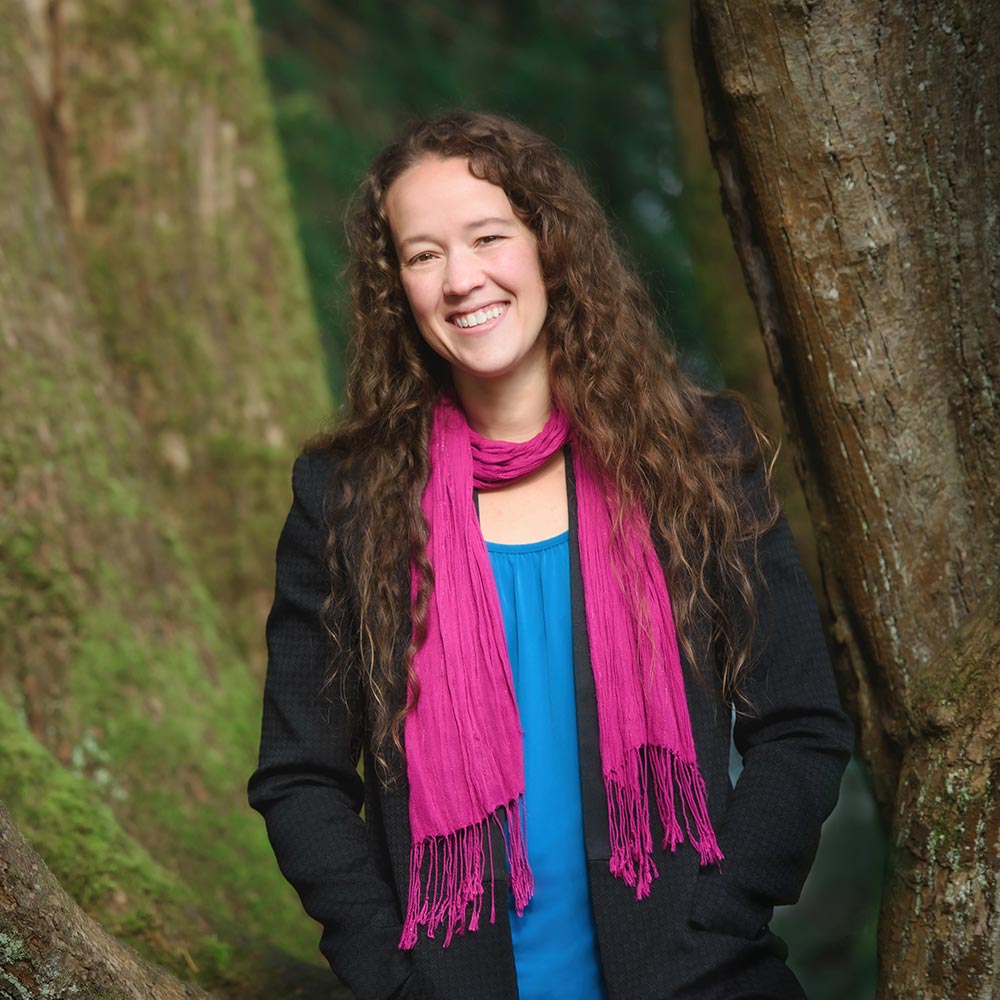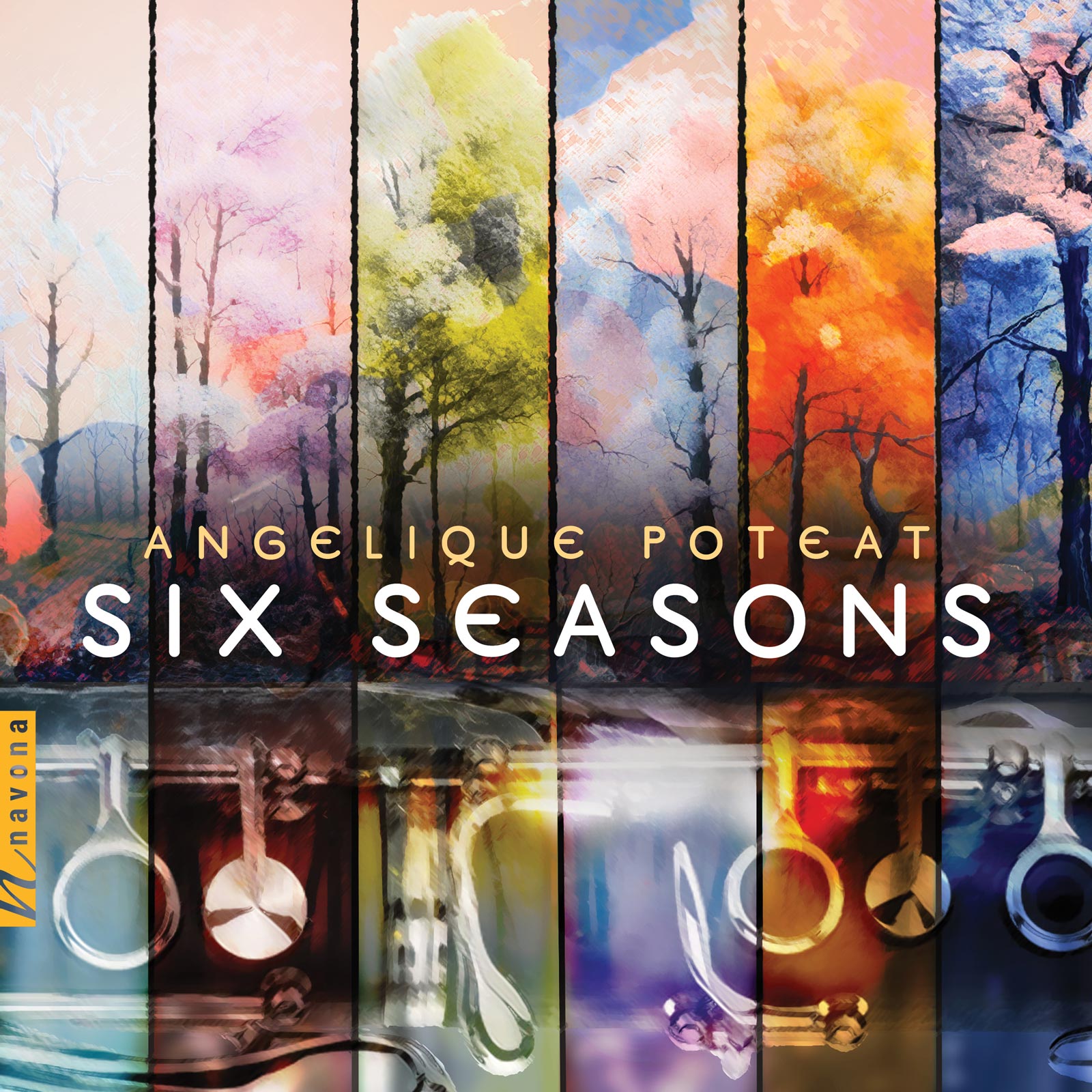
Composer and clarinetist Angelique Poteat demonstrates the dynamic emotive range of her instrument through original chamber music on SIX SEASONS. The work is inspired by the six “growing seasons” described in Joshua McFadden’s cookbook of the same title. As the name suggests, the music also nods to Vivaldi’s The Four Seasons by beginning with early spring and journeying toward winter, symbolizing the arc of human life.
Today, Angelique is our featured artist on the “Inside Story,” a blog series exploring the inner workings and personalities of our composers and performers. Read on to learn about her passion for problem solving and how being in motion helps her inspiration flow…
What emotions do you hope listeners will experience after hearing your work?
Because of the ambiguous nature of music, I generally don’t seek to specifically manipulate listeners’ emotions in one direction or another, but I do have a few works that try to encourage contemplation of some more relevant issues happening in our world today. In my piece “Six Seasons, the fourth movement, “Swelter,” evokes a brittleness and vulnerability that I saw and felt walking through recently burnt forests in Washington, Oregon, and Idaho. The strings play with the woody back of the bow (col legno) to get a spidery sound, while the solo cello plays a haunting melody so high up on its lowest C string that the tone is a fragile whisper. Maybe listeners might feel unease, curiosity, remorse, or even determination if they are of the mindset to do their part to improve the world. That’s one of the wonderful benefits of sharing music, that it affects people so differently and cultivates an environment for sharing ideas.
How have your influences changed as you’ve grown as a musician?
Early in my composer music education I sought inspiration and influence from classical music masters, many of whom I still very much admire: Bartok, Debussy, Messiaen, Brahms, Shostakovich, and countless others. As I’ve continued to explore my own voice as a composer, I now find myself gravitating toward more “popular music” influence (e.g. jazz, grunge, folk), as well as from the natural world. I’m just as likely to include some whale song into a solo double bass piece as I am to write a clarinet quintet movement based on a drum kit solo. I would describe my music as more eclectic, which seems fitting as a creator from the great melting pot that is the United States.
What were your first musical experiences?
My siblings and I grew up singing with my mom. We sang prayers before bed, we sang along with the radio, and we sang to keep ourselves entertained. By the time I was maybe 5, I started making up my own songs to sing, and when I got an electric keyboard at the age of 8, I made up short pieces to play on the piano. I still enjoy singing, but mostly do it through my clarinet these days.
Where and when are you most creative?
While I’m probably most productive as a composer when I’m at my desk staring down an impending deadline, I find that creativity is a bit more spontaneous and intuitive. I often feel most inspired when I’m out hiking, riding my bike, or even just taking a walk around my neighborhood. Music and motion seem much more intertwined, and the act of moving and being present and aware of my surroundings clears out my thoughts enough to allow more abstract expression to take over. It’s also nice to be in a place where I have a large block of free time to mentally develop those ideas, run through various possibilities, and get attached to key gestures before I even write anything down.
What are your passions beyond music?
Music is one of those strangely elusive crafts where it is easy to feel like my performance could always reach closer to ethereal, or the latest piece that I’ve written could be tweaked a bit more before adding the double bar line in order to say everything that needs to be said in just the right way. I like to balance music with creative endeavors that have more functional outcomes, like cooking and doing DIY home projects. The more power tools, the better! I also enjoy problem solving, whether it’s a crossword puzzle, repairing a bicycle, or figuring out how to climb a particularly challenging crag route.
What musical mentor had the greatest impact on your artistic journey? Is there any wisdom they’ve imparted that still resonates today?
When I was in high school, I participated for several years in a workshop directed by the composer Samuel Jones, who at the time was Composer-in-Residence for the Seattle Symphony Orchestra. During one of our sessions, he shared with us that we as composers are all part of a Great Conversation, listening to what has been said, reacting and contributing in our own way, and inspiring future discussion. I have always taken that to heart, not only as a composer, but also as a performer. We are all part of a musical community: composers, performers, and listeners. It is so important to not only listen to and appreciate the music that we are exposed to, but to keep the conversation going. Music is a reflection of our time and culture and should evolve with us.

Angelique Poteat (b. 1986) is a native of the Pacific Northwest, and many of her works are inspired by the natural beauty of the region. Her music has been described as “engaging, restless” (New York Times), “serious and nicely crafted” (American Record Guide), and “extremely accomplished and vividly picturesque” (Seattle Times), receiving performances on four continents by ensembles including the Seattle Symphony Orchestra, arx Percussion Duo, Emerald City Music, CernaBella, and Trio Claviola. Poteat is the recipient of the 2015 American Prize in Orchestral Composition for her work Beyond Much Difference (2014), and has held Composer-in-Residence positions with the Seattle Symphony Orchestra and the New Music on the Rock Festival.

